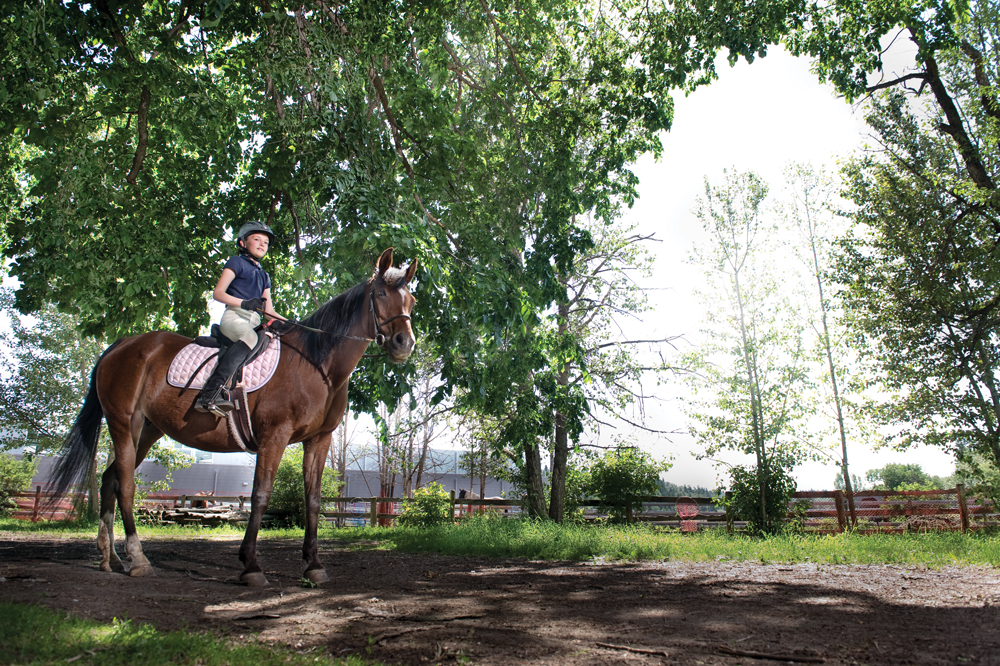Photography: Bluefish Studios
The little girl with the bright blue eyes and a sprinkle of cheek freckles is standing up against the wall, waiting, as patiently as her eight years allow, for her teacher and teaching assistant to finish conferring. Today is class picture day and, at this school, students are posing individually with their teachers.
“OK, who’s riding Cocoa today?”
The little girl’s hand shoots up, and she walks to the stall with her head held high. She takes the lead rope from the teaching assistants and settles in by the horse’s side, looking up at the animal with unabashed love.
Cocoa takes a tentative step forward; the little girl gently holds her back. “I know,” she murmurs into the horse’s cheek. “You want to go. Me too, but we have to wait our turn, OK?” She lays her head against the horse, encircling her neck with her free arm. “You’re adorable,” she says.
Our memories of favourite teachers are often rooted in the relationships we built with them. But, it’s unlikely the teachers we remember were named Cocoa, Joker or Dakota, or that they bedded down in a paddock after lessons were over for the day.
To meet these educators, you’ll need to head down to the Whitemud Equine Learning Centre Association (WELCA), nestled on 48 pastoral acres in the river valley, south of the North Saskatchewan along Fox Drive. As a City of Edmonton community partner, WELCA provides a wide variety of equine services to people of diverse ages, riding experience and needs. Its programs range from a 40-week horsemanship program and an eight-week Learn to Ride program, to summer camps for children and instructor-led pony rides for pre-schoolers aged one to five years. WELCA also hosts riding lessons, school field trips, seniors’ tours and workshops on topics such as how to think like a horse. Girl Guides earning badges, students in NAIT’s animal health technology program and clients of equine-assisted physical and mental health therapy initiatives are all granted access to WELCA’s horses and facilities.
